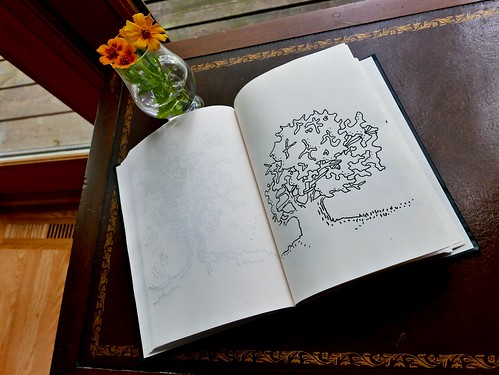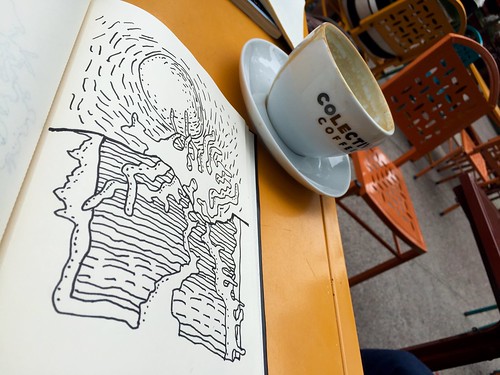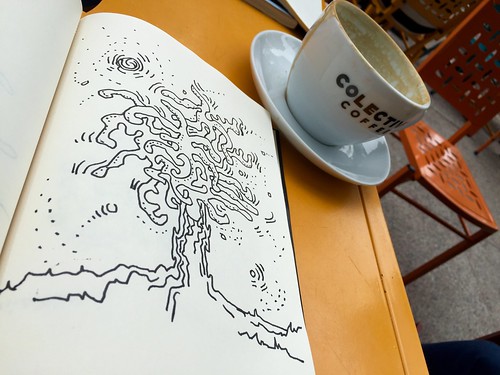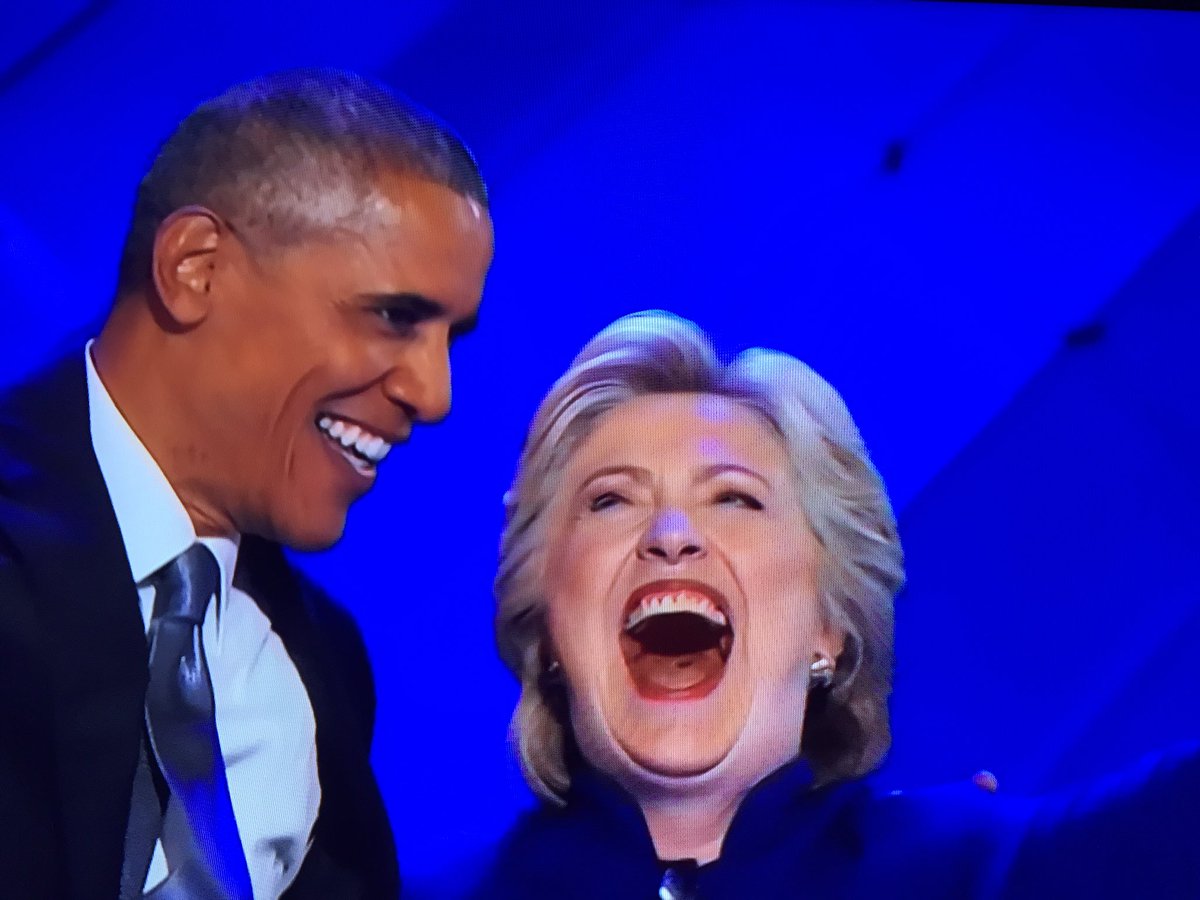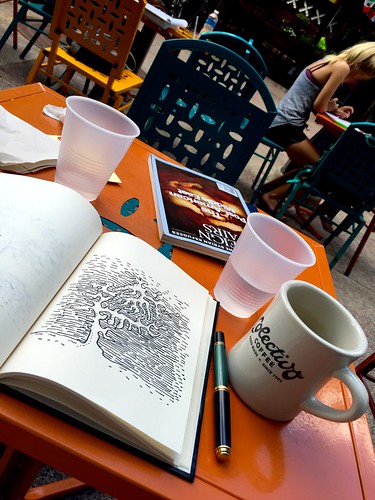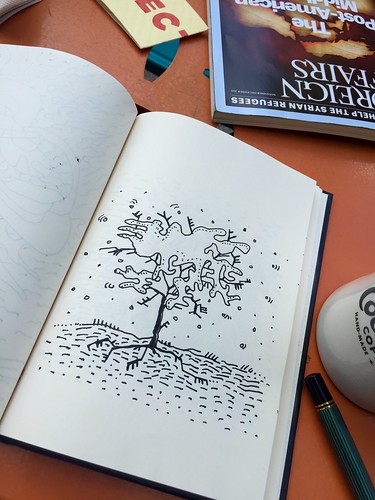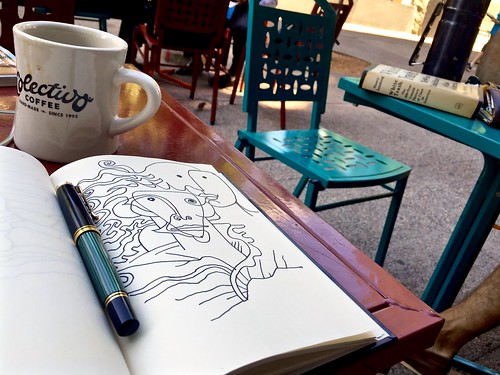Many people are just incanting
Trump is a racist and expecting you to already know and be on the same page, but I'm not that kind of go-along-to-get-along person. (Ironically, the go-along-to-get-along person is, in a different context, amenable to racism and to following a demagogue and so forth, so I'm happy with my standing apart from the Trump-is-a-racist crowd.)
But Nicholas Kristof, in
a short column, undertakes to assemble the evidence, looking at nearly half a century of Trump's very extensive activities in this world. Kristof concludes that Trump is, indeed, a racist, but what matters is the evidence. By presenting evidence, Kristof puts us in a position to judge for ourselves. He also exposes himself to our judgment if his assessment of the evidence is biased. How much evidence do you need before you see — as Kristof does — "a narrative arc,
a consistent pattern" that can't be called anything "else... but racism"?
For that great length of time, there should be an awful lot to amount to a consistent pattern, so let's look at Kristof's evidence:
1. In 1973, when Trump was 27 and working with his father, the Nixon administration Justice Department sued the Trump organization for housing discrimination. The government used testers, and, as Kristof puts it: "Repeatedly, the black person was told that nothing was available, while the white tester was shown apartments for immediate rental." The lawsuit was settled, and: "Three years later, the government sued the Trumps again, for continuing to discriminate." Kristof doesn't say how that lawsuit was resolved, and he concedes that Trump "inherited" whatever the policy was. Kristof does not talk about whether there is evidence of discrimination after the mid-1970s, after Trump is out from under his father's dominance. And Kristof — I think quite unfairly — gives absolutely no attention to the
absence of evidence. If Donald Trump began in a business where excluding black people was the norm, and he ended that discrimination, avoiding even accusations, that should count as an achievement, and the failure to notice this is evidence of bias in Kristof.
2. Trump took out an ad in 1989, saying that
the 5 teenagers who were convicted of raping and beating the "Central Park jogger" deserved the death penalty we should bring back the death penalty. You can read the ad
here. It resonates with today's politics. ("What has happened to our City... What has happened to law and order...?") There's nothing racial in the text — other than a mention of the "families — White, Black, Hispanic and Asian" — who are suffering from the "muggers and murderers" who plague the city. But, Kristof tells us, the 5 who were convicted in the Central Park jogger case were "black and Latino." Kristof accuses Trump of "whipping up the crowds" in "a modern version of a lynching," but the young men were brought to trial and prosecuted, and the problem of law and order in New York was very real.
Somebody raped that woman and left her naked, tortured, and in a coma. In those decades, New York was a scary place, and a person going into Central Park at night was considered a fool. I was a woman living in the city in those days. It was a very different place, where you were supposed to be smart and know that you were always in danger. Donald Trump spoke out about that. In later years, the men who were convicted — and who confessed — obtained their release because they did not match the DNA from the victim. This was a complex and important incident in which Trump played a role. Was that role racist? Decide for yourself. Is it part of a "consistent pattern" of racism? It's unlike everything else on this list. And by the way, does Trump get credit for vigilance about violence against women?
3. One former Trump casino worker, back in the 1980s, was quoted in The New Yorker saying: "When Donald and Ivana came to the casino, the bosses would order all the black people off the floor. … They put us all in the back." So, there's hearsay from one person about what was a practice purportedly involving many other persons. Has anyone ever produced the evidence that this was a real practice or tried to figure out who demanded the practice? Where are all the lawsuits about he mistreatment of black employees in the many establishments Trump's organization ran? You just have one man saying something back in the 80s! That's the
absence of a pattern.
4. There is a book written in 1991 that has a quote from Trump complaining about one black accountant and calling him lazy and then making a racial wisecrack: "And it’s probably not his fault, because laziness is a trait in blacks. It really is, I believe that. It’s not anything they can control." Trump denies saying that, but even if it's true, where's the pattern? He made one regrettable racial joke a quarter century ago! If you're proving a pattern, shouldn't you have at least 25 racist jokes? I'd say there's an amazing lack of material like this. Has Hillary ever, in her 7 decades of life, remarked, after criticizing an individual, that maybe he couldn't help it, because he belongs to a group that people think of as having a particular characteristic? Are we going to label "racist" anyone who's ever said one thing like that, even decades ago? We could all sign the "Everybody's a little bit racist" confession, but then what? Why are we losing our minds over Trump being racist?
5. Trump made a show of demanding to see Obama's birth certificate. Obama was running for President and needed to meet the constitutional requirement that he's a natural born citizen. Is that racist? Because Obama is black? Because the possible other country of birth is in Africa?
6. There's Trump's statement that people entering the country illegally from Mexico are "in many cases, criminals, drug dealers, rapists." Kristof concedes that "Latinos can be of any race," so "technically" it's "not so much racism as bigotry."
7. There's the call for a temporary ban on Muslims entering the country. Again, as Kristof concedes, that's not "technically" racism.
8. Trump didn't distance himself quickly and decisively enough from from the Ku Klux Klan in a television interview.
9. Trump retweeted some things: "a graphic suggesting that 81 percent of white murder victims are killed by blacks (the actual figure is about 15 percent)," "messages from white supremacists or Nazi sympathizers."
That's it. That's all the evidence Kristof put together — from an event-filled half century career — and which he reads as "a narrative arc, a consistent pattern." Judge for yourself.
